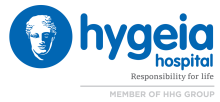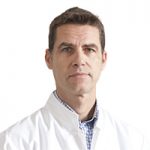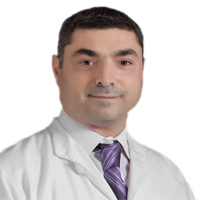- HYGEIA
- Vision & Mission
- Timeline
- Organizational structure
- Press Releases
- Social responsibility
- Awards and Distinctions
- Human Resources
- Scientific & Training activities
- Articles – Publications
- Our Facilities
- Magazines
- Healthcare Programs
- Doctors
- Services
- Medical Divisions & Services
- Imaging Divisions
- Departments
- Units
- Centers of Excellence
- Emergency – Outpatient
- Nursing Service
- Ambulances
- Patients
- Hygeia
- Υπηρεσίες
- Ιατρικά Τμήματα & Υπηρεσίες
Nephrology Centre (Centre for Diagnosis, Treatment & Research on Kidney Diseases)
The Centre for Diagnosis, Treatment & Research on Kidney Diseases (C.D.T.R.KD) of the Hygeia Hospital is a state-of-the-art Nephrology Centre staffed with experienced medical personnel, pursuing multifaceted (clinical, research and educational) activities in the field of Nephrology.
The Centre’s clinical activities comprise:
- The diagnosis, treatment and follow-up of patients with:
- Chronic Kidney Disease (CKD)
- End-stage Renal Disease (ESRD)
- Diabetic Nephropathy
- Glomerular Diseases
- Hereditary Kidney Diseases (polycystic kidney disease etc)
- Systemic Diseases with kidney involvement
- Arterial hypertension, with or without chronic kidney disease
- Consultation services to in-hospital patients with renal problems, including Acute Kidney Injury (Acute Renal Failure).
- The application of the latest and most innovative treatments for the management of Chronic Kidney Disease.
For these clinical activities, the Centre has developed a dedicated Nephrology Department and a Nephrology Outpatient Clinic.
The Centre’s research activities include the research and development of new, innovative cellular and gene therapies for kidney diseases in the area of Regenerative Medicine, as well as the conduction of multicentre clinical trials on these new treatments, in collaboration with prestigious domestic and international research Centres from academia and the industry.
The Centre also launches educational activities through the internet and the Media, aiming at raising awareness of the public about common kidney problems, with particular emphasis on the prevention, early diagnosis and management of Chronic Kidney Disease, which constitutes a significant public health problem globally.
Through its research and development activities and its ongoing collaborations with world-renowned research Centres, the Centre for Diagnosis, Treatment & Research on Kidney Diseases of the HYGEIA hospital aspires to become a pole of attraction for the development of medical tourism in Greece and the pursuit of international research programmes in the field of Nephrology.
The centre offers the full range of tests necessary for the early detection and diagnosis of kidney diseases, using the state-of-the-art laboratories of the Hygeia Group. These include:
- Lab tests (Haematological, Biochemical, Immunological etc),
- Medical Imaging (Ultrasound, CT Scan, Magnetic Resonance Imaging, Angiography)
- Nuclear Scans with radioisotopes (scintigraphy scans)
- Kidney biopsy
The kidney biopsy is an invasive medical procedure, which constitutes an important tool for the accurate diagnosis of kidney diseases and their targeted management.
With the use of a special needle and under the guidance of ultrasound or a CT scanner, the doctor removes a small piece of kidney tissue, which is then examined under the microscope, by experienced pathologists specialized in the diagnosis of kidney problems. The procedure is almost painless, carried out under local anaesthesia and usually requires the patient to stay in the hospital for 24 hours.
The procedure is safe, carrying a very small risk of serious complications like bleeding. However, aiming at maximum possible safety for patients, a kidney biopsy is performed only when certain indications apply and if specific conditions are met. In addition, its result should be expected to yield important therapeutic benefits for the patient. Finally, before proceeding to a kidney biopsy the patient receives detailed and thorough information regarding the potential benefits and risks of the procedure and is required to provide his consent.
Glomerulonephritis Clinic
The clinic operates every Thursday 10.00 – 13.30, by appointment.
The clinic specializes in patients with diseases that damage the glomerulus, i.e. the blood-filtering section of the kidney. These conditions are known as glomerulonephritides and can lead to decreased renal function and end-stage renal failure.
Glomerulonephritis manifests with blood and/or protein/albumin in the urine (i.e.haematuria or proteinuria) and may be accompanied by hypertension, oedema (i.e. swelling of the legs, face or even the whole body) and deterioration of renal function (i.e. elevated urea and creatinine/renal failure).
Regarding pathogenesis, glomerulonephritis can be primary (a.k.a. “idiopathic” – meaning that its cause is unknown) or secondary (meaning that its cause is known and it can be an infection, systemic disease, e.g. systemic lupus erythematosus, vasculitis, haematological diseases, diabetes mellitus, etc.).
Diagnosis is primarily made by kidney biopsy, which requires 24-hour hospital stay (detailed description is provided in the section on tests that are performed at the centre). Treatment usually entails the prescription of steroids with or without other immunosuppressive medications, and may last for an extensive period of time (several months to years).
Chronic Kidney Disease Clinic
The clinic operates every Tuesday 10.00 – 13.30, by appointment.
This clinic specializes in patients with moderate to advanced chronic kidney disease/chronic renal failure, regardless of the cause (usually manifested as increases in blood urea and creatinine values). Regular monitoring and therapeutic interventions in chronic kidney disease, aim at slowing disease progression and delaying the transition to end-stage renal disease (renal failure), where a form of renal replacement therapy (such as haemodialysis, peritoneal dialysis or kidney transplantation) is needed in order to sustain life.
All established therapies for the management of chronic kidney disease are applied, according to international guidelines and standards of care, while the Nephrology Centre has forged international affiliations with leading research centres in Europe and the US, as well as with organisations and stakeholders active in the fields of biotechnology and regenerative medicine, with the aim to offer to its patients the most innovative treatments available for the management of kidney disease.
 Contact Us
Contact UsDoctors Offices, 5 Erythrou Stavrou St.
1st FloorTelephones
+30 210 686 7650
+30 210 686 7651Fax
+30 210 686 7650Email
chiatrou@hygeia.grMedical Team
- Director
-
 Iatrou Christos
Iatrou Christos - Consultats
-
 Panagiotou Angeliki
Panagiotou Angeliki -
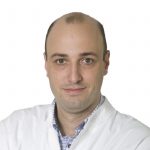 Zavvos Vasileios
Zavvos Vasileios
- © 2007-2025 HYGEIA S.M.S.A.
- Personal Data Protection Policy
- COOKIES Policy
- Terms of Use
- Privacy Policy
- Credits
- Sitemap
- Made by minoanDesign
Ο ιστότοπoς μας χρησιμοποιεί cookies για να καταστήσει την περιήγηση όσο το δυνατόν πιο λειτουργική και για να συγκεντρώνει στατιστικά στοιχεία σχετικά με τη χρήση της. Αν θέλετε να λάβετε περισσότερες πληροφορίες πατήστε Περισσότερα ή για να αρνηθείτε να παράσχετε τη συγκατάθεσή σας για τα cookies, πατήστε Άρνηση. Συνεχίζοντας την περιήγηση σε αυτόν τον ιστότοπο, αποδέχεστε τα cookies μας.
Αποδοχή όλων Άρνηση όλων ΡυθμίσειςCookies ManagerΡυθμίσεις Cookies
Ο ιστότοπoς μας χρησιμοποιεί cookies για να καταστήσει την περιήγηση όσο το δυνατόν πιο λειτουργική και για να συγκεντρώνει στατιστικά στοιχεία σχετικά με τη χρήση της. Αν θέλετε να λάβετε περισσότερες πληροφορίες πατήστε Περισσότερα ή για να αρνηθείτε να παράσχετε τη συγκατάθεσή σας για τα cookies, πατήστε Άρνηση. Συνεχίζοντας την περιήγηση σε αυτόν τον ιστότοπο, αποδέχεστε τα cookies μας.




















